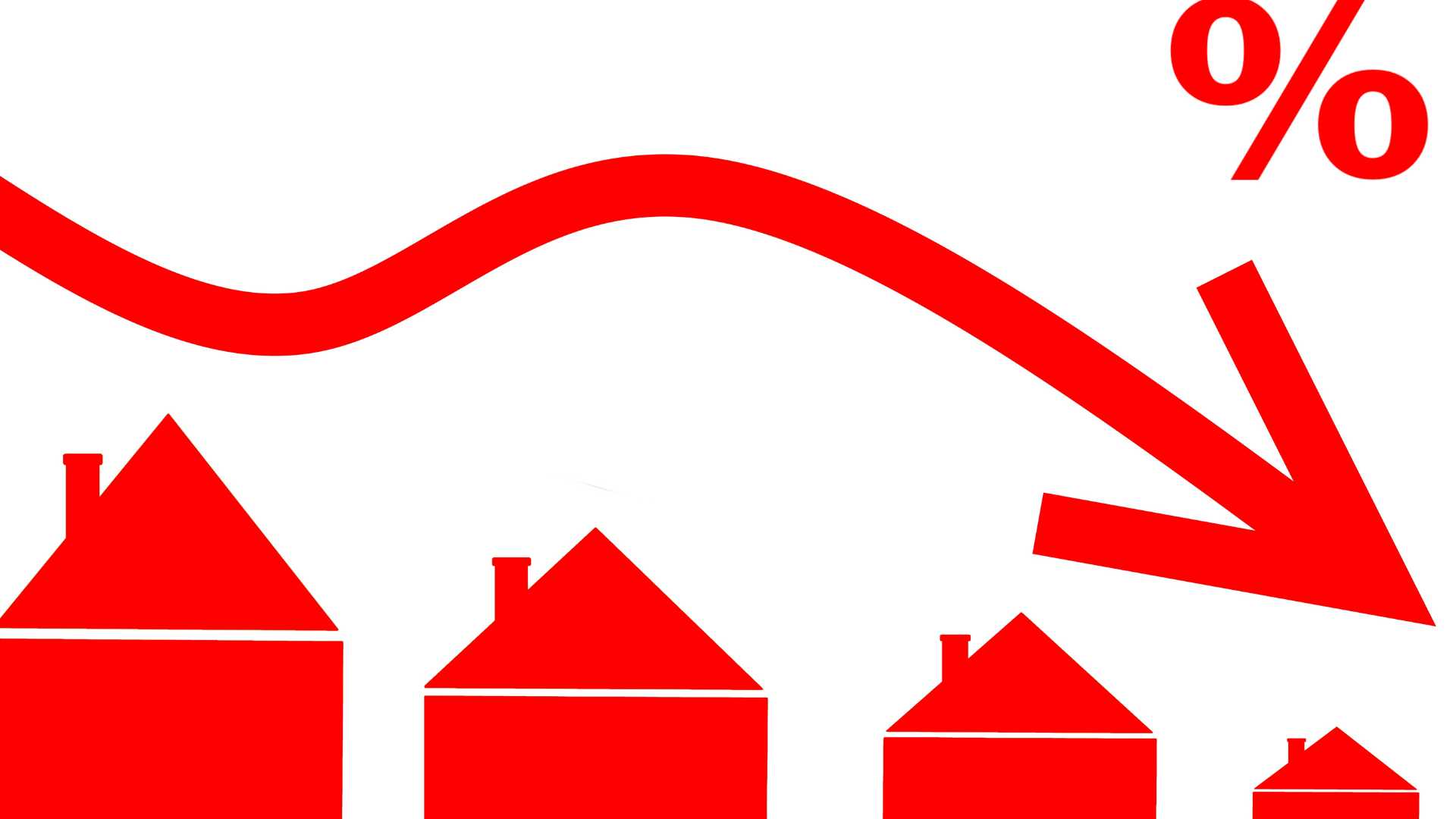Welcome To Our Mortgage Educational Blog About:
When To Refinance Your Mortgage? – Is Now The Perfect Time

Mortgage payments got you feeling like a hamster on a wheel?
Maybe it’s time to jump off and explore the possibility of refinancing. We’ll make sure you’re not lost in the maze of mortgage refinance options.
Refinancing your mortgage can be a great way to lower your monthly payments and overall interest costs. However, it’s essential to know when the right time is to refinance.
Whether you’re considering refinancing to
- get a lower interest rate,
- shorten the length of your loan,
- or cash out some of your equity,
there are a number of factors to consider before making the decision to refinance.
Here are some of the key signs that indicate it may be the right time to refinance your mortgage, as well as some important things to keep in mind throughout the process.
What Is Mortgage Refinancing?
Mortgage refinancing, simply put, is to get a new mortgage to replace an existing one.
The new mortgage is used to pay off the current mortgage, and the borrower is left with a new mortgage loan with different terms.
- The most common reason to refinance mortgages is to lower monthly payments and overall interest costs.
- Refinancing can also be used to shorten the length of the loan, cash out some of the equity, or change the type of loan.
Why Is It Important To Find The Right Time For Refinancing?
Finding the perfect timing for refinancing can greatly impact the overall costs of the loan.
For instance,
- If you refinance when interest rates are low, you may be able to secure a lower monthly payment on your new loan, which could save you thousands of CAD over the life of the loan.
- Additionally, if you have built up significant home equity, refinancing can allow you to cash out and use your home equity for other purposes.
When To Refinance Your Mortgage?

The best time to refinance your existing mortgage depends on your personal financial situation and the current market conditions.
In general, it’s a good idea to refinance if you can secure a lower interest rate than the one you currently have, or if you can shorten the loan term.
Here’s an example:
If you originally took out a30 year fixed-rate mortgage with an interest rate of 5% and you’ve been paying on it for 5 years, the interest rate has dropped to 4% and you have 25 years left on your mortgage.
Refinancing your mortgage would allow you to lock in the lower interest rate and potentially save thousands of dollars in interest over the life of the loan.
Additionally, if your credit score has improved, you may qualify for a better interest rate on your mortgage, and it would be wise to refinance at this point.
5 Key Signs To Identify The Right Time For Mortgage Refinancing
Determining if it is the right time to refinance my mortgage requires evaluating current financial situation and considering several factors.
Here are some key signs that indicate it may be the right time to refinance a home mortgage:
- Interest rates have dropped
- Credit score has improved
- Equity in the home has increased
- Difficulty making monthly mortgage payments
- Paying private mortgage insurance (PMI)
If you put less than 20% down on your primary mortgage, you may be required to pay private mortgage insurance (PMI).
Refinancing to a home loan with a higher loan-to-value (LTV) ratio can help you eliminate the need to pay PMI.
Note – If you plan to sell your home in the near future or if the closing costs to refinance your home equity loan are too high, refinancing may not be the best option.
Factors To Consider For Refinancing Your Mortgage
When considering refinancing your mortgage in Canada, there are several factors to take into account.
1. Mortgage Interest Rates
Refinancing to a lower interest rate can significantly reduce your monthly payments and overall interest costs.
Remember to compare rates from different mortgage lenders and ensure that you are getting a competitive rate.
2. Credit Score
A better credit score can qualify you for a better interest rate and lower closing costs.
It’s always a good idea to check your credit score and report and address any errors or issues before applying for a refinance.
3. Equity
As you make payments on your mortgage, you build equity in your home.
By considering this equity, you can determine if you have enough equity to qualify for a refinance and at the same time, you can also consider if it makes sense to refinance based on the equity you have.
Additionally, home equity can also allow you to use cash-out refinancing, where you can borrow against the equity in your home to fund home improvements, pay off high-interest debt, or for other financial goals.
4. Mortgage Term
The term of the mortgage is the number of years you have to pay off the mortgage.
If you’re looking to reduce your monthly payments, refinancing to a longer-term mortgage can help.
However, you will end up paying more in interest over the life of the loan, even if your monthly payment is lower.
5. Penalties
If you want to refinance your mortgage, remember to be aware of any penalties you may incur.
Some lenders charge a penalty for breaking your mortgage early, which is called a prepayment penalty.
It’s important to check with your lender to see if there are any penalties associated with refinancing your mortgage.
6. Closing costs
Closing costs include appraisal fees, legal fees, and title insurance. It’s vital to factor in these costs of refinancing when determining if refinancing works for you.
7. Your Long-Term Plans
You should consider your long-term plans, such as whether you plan to sell your home in the near future, before deciding to refinance.
Always Consult A Mortgage Professional

It’s always important to consult with a financial advisor or mortgage professional to determine if refinancing is the right choice for you and if so when the timing is right.
We can help you evaluate your current financial situation, determine the costs and benefits of refinancing, and help you find the best deal with a lender.
So, Does It Make Sense To Refinance A Mortgage Now?
To sum it up, there are several factors to consider when deciding when to refinance a mortgage in Canada.
These include your current interest rate, the current market conditions, and your personal financial situation.
Don’t forget to do your research and speak with a mortgage professional to determine if refinancing is the right choice for you.
Key Take-Away
Refinancing can be a great way to save money on your monthly mortgage payments, pay off your mortgage faster, or access the equity in your home for other financial goals.
However, it’s also necessary to consider the costs associated with refinancing, such as legal and appraisal fees, and to make sure that the long-term benefits outweigh these costs.
And, the best time to refinance is when the conditions are favorable and it makes sense for your personal financial goals.
Let Us Help You…
We understand that the mortgage process can be confusing and overwhelming. That’s why we offer a range of services to help guide you through the process of refinancing your mortgage in Canada.
Our team of experienced mortgage professionals will work with you to assess your current financial situation and determine if refinancing is the right choice for you.
We will also help you compare different mortgage options and refinance rates, and provide you with the information you need to make an informed decision.
We also offer a range of tools and resources, such as online calculators and mortgage rate comparison charts, to help you understand the costs and benefits of refinancing.
Contact us today to schedule a consultation.
Recent Educational Blogs
First Responder Mortgage Program
Jan 2026 | First Responder Mortgage ProgramAt Metro Mortgage Group, we have deep respect for the everyday heroes of our city — the members of the Edmonton Police Service, EMS, and Fire Rescue Services. Your commitment keeps our community safe, often at great personal...
Pros and Cons of a Home Equity Line of Credit (HELOC)
Dec 2025 | Pros and Cons of a Home Equity Line of Credit (HELOC)If you’re a Canadian homeowner, you’ve probably heard friends or family talk about using a home equity line of credit, or HELOC. People often use it to renovate, consolidate debt, or help kids with school...
What the Latest Bank of Canada Rate Cut Means for Canadian Borrowers and Homeowners
Nov 2025 | What Rate Cut Means for Canadian Borrowers and Homeowners On October 29, 2025, the Bank of Canada made headlines by cutting its benchmark policy rate by 25 basis points. This move brought the policy rate down to 2.25%. For Canadians with mortgages, loans,...




